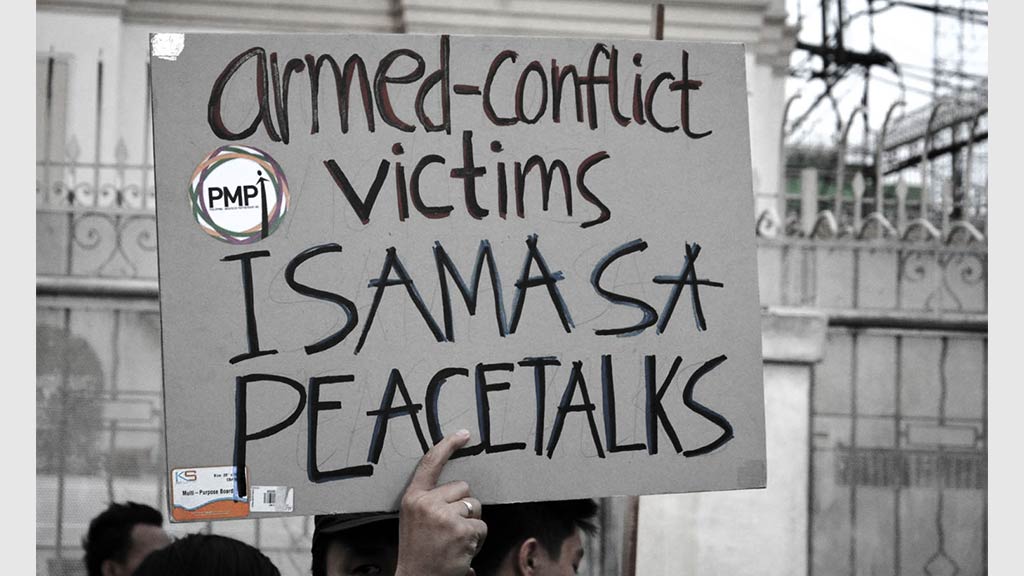“Think of communities, victims in peace nego”
With the resumption of peace talks, the fourth negotiations between the Philippine Government (GRP) and the country’s communist group is set to continue April 1.
A network of civil society organization and rights groups expresses relief and lauds the peace panels of the GRP and the National Democratic Front of the Philippines (NDFP) for agreeing to get back to table.
The Philippine Misereor Partnership, Inc. (PMPI) as well emphasizes that while the network “are happy that a light of hope glints as the GRP-NDFP peace table is back on track, both parties this time must also consider prioritizing bilateral ceasefire.”
“We are relieved that the wind has changed in favor of just and lasting peace. But the fact that attacks, encounters, and deadly firefights are still happening in communities still keeps us all awake at night,” Yoly Esguerra, the national coordinator of the Philippine Misereor Partnership, Inc. (PMPI) said.
Esguerra also highlighted that they call on both parties to put the victims of the conflict at the center of the negotiation
“The discussion of what needs to be set-out in the future is important, which is why we celebrate that this peace table is back and functional. This time, however, both parties must consider that listening and giving space and justice to the victims of long-standing war should should not be a separate agenda,” she added.
According to Esguerra, the network believes that victims, the vulnerable communities, the grassroots affected by this conflict must be prioritized to be able to lay a strong foundation of the peace based on justice that PMPI is envisioning.
PMPI Co-Convenor and Oblates of Notre Dame nun, Sr. Susan Bolanio expressed her frustration over the volatile position of both the government and the CPP-NPA-NDFP in the peace talks.
“If we talk about peace in this generation, we work for it. Please take peace talks seriously. I have been working in the community for more than forty years. I have visited countless of families, communities who suffered from armed conflict. It is these communities in rural areas that suffer most,” Sr. Susan said.
The network appeals for “more openness, trust, and transparency” in the continuing peace dialogue.
“We dream of dialogue tables that are inclusive, ensuring participation of various stakeholders from the communities, the NGOs, church, academe and even business,” the statement of PMPI said.
Recent news brought to light deaths from the police force in an alleged attack of suspected New Peoples Army member. The latter, however, in a statement revealed that the Armed Forces of the Philippines have conducted aerial bombings in provinces in Mindanao since February, killing farmers and civilians.
“With people and combatants getting injured and dying in rural areas, even the good news that peace talks will continue appears to be a distant reality. We need to manage, if not stop, the violence. Stop this war. Bring, instead, to the peace negotiation table our issues, not in the countrysides that heavily affects the lives and livelihoods of our farmers and indigenous peoples,” said Jack Pamine of Pax Christi, also a member of PMPI.
“Everything is a compelling reason to continue the peace talks. We just have to genuinely listen to the victims and to manage our own rage that can rear its ugly heads at times,” added Esguerra.

